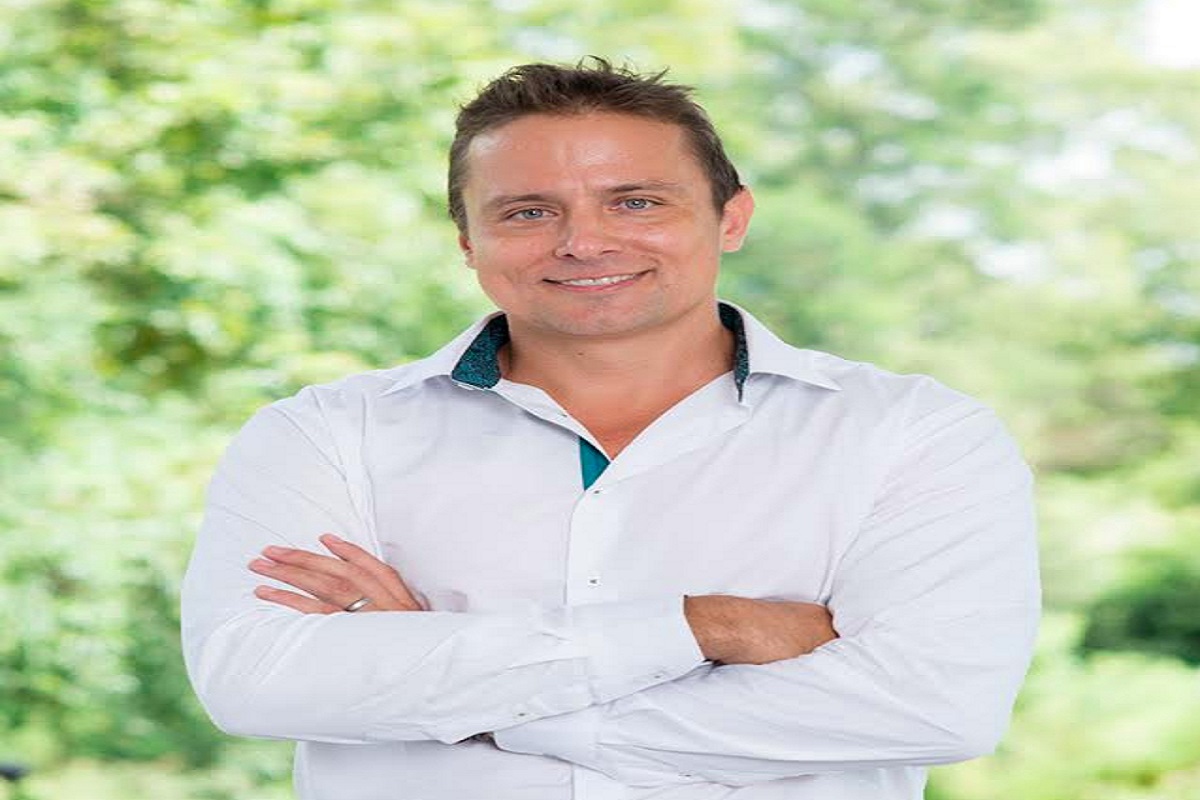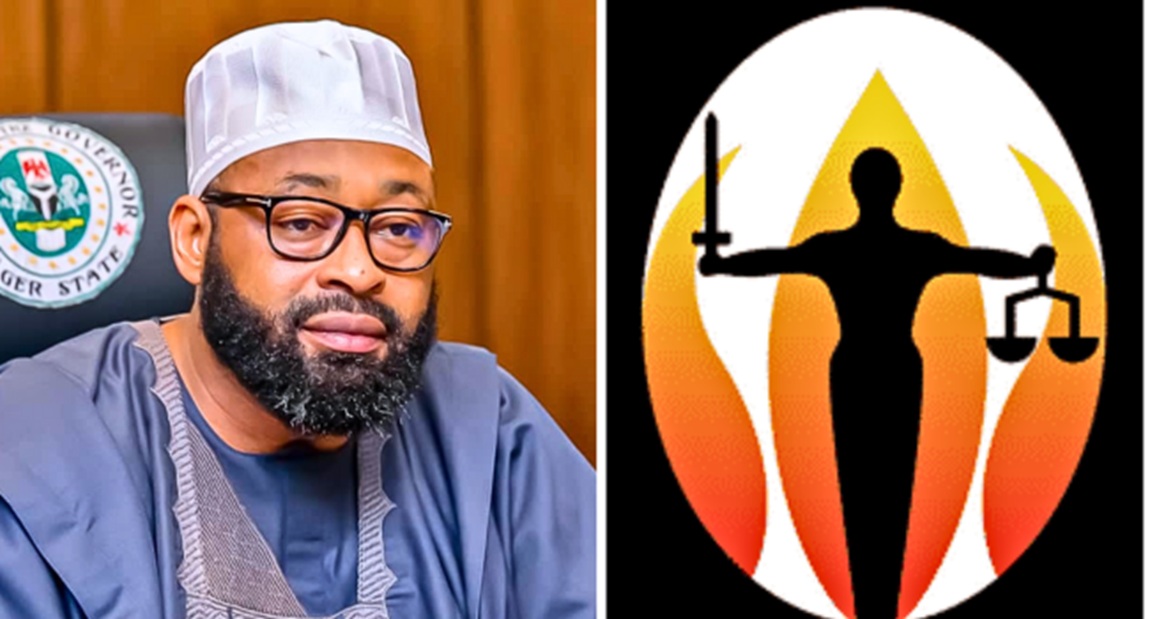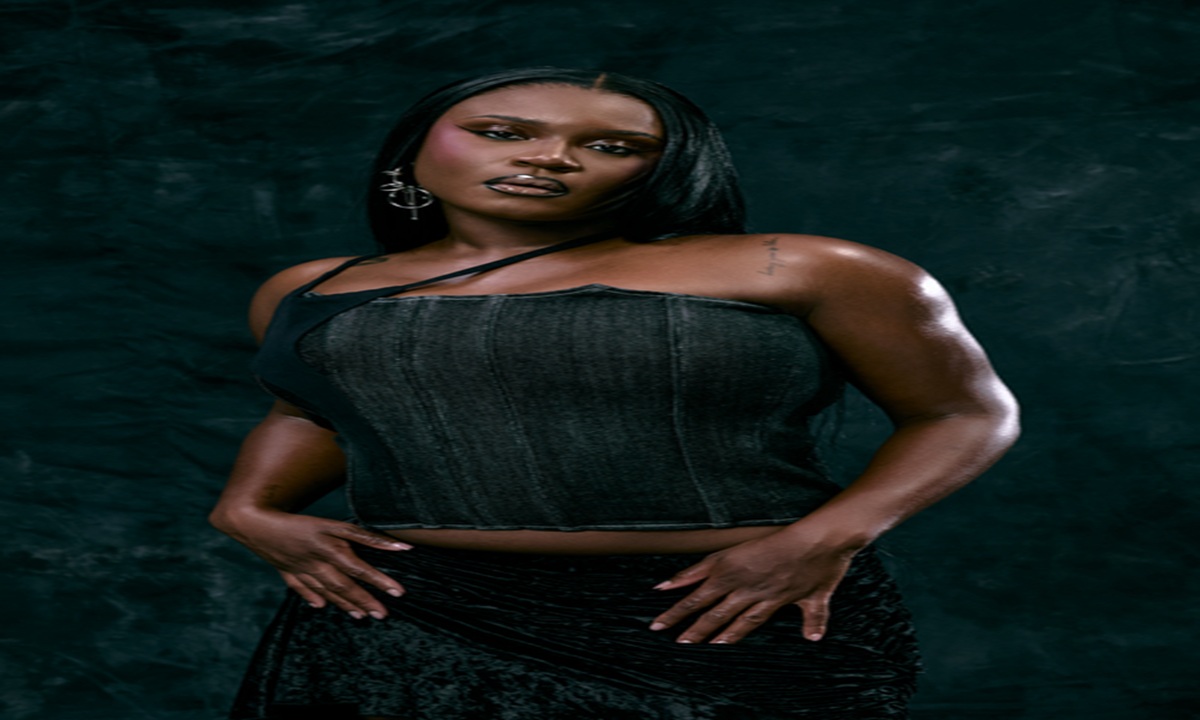Broadcasting
Digital Inequality is a Major Threat to Africa’s Economic Future

By Sean Riley, CEO of Ad Dynamo by Aleph
It’s no secret that Africa suffers from incredibly high levels of economic inequality, with South Africa taking the top spot on a global level. In terms of wealth inequality, seven in ten of the world’s most unequal countries are located in Africa. Moreover, Marie Francoise Marie-Nelly, World Bank Country Director for Botswana, Eswatini, Lesotho, Namibia, and South Africa points out that despite many African countries “undertaking some of the most redistributive spending in the world, particularly on education and health, inequality remains extremely high”. This suggests that in order for the continent’s population to thrive economically in the future, it must also address digital inequality.

While many articles have been written about the continent’s ability to ‘leapfrog’ stages of economic development, through the likes of cellular technology for instance, this isn’t universally true. Even though cities in some of Africa’s biggest markets embrace 5G, access still remains a major barrier for many.
If Africa is to reach its full potential and secure the economic future that so many believe it is capable of, it is imperative that digital inequality is addressed immediately.
Promising growth, but still room for improvement
There is however, promising growth especially when it comes to internet access. According to Statista, Nigeria is set to add 35 million new users by 2026. In Ghana, World Bank figures show that 58% of the population is now online, with the number of new internet users also increasing by 6% between 2020 and 2021.
Yet, there is still significant room for additional growth. Focusing on Sub-Saharan Africa, upwards of 800 million people are not yet connected to mobile internet. A comparatively small proportion of those people (270 million) are not connected because they do not have the required coverage. However, of greater concern are the 520 million people across the region who could theoretically access the mobile internet but still don’t. This comes down to a number of interconnected reasons, including cost, lack of skills, education, age, and location.
As connectivity becomes cheaper and more ubiquitous, those numbers should organically decrease, presenting some economic benefits on its own, but it won’t be enough to ensure that Africa reaches its full potential.
After all, 50% of the Global Gross Domestic Product (GDP) is already digitalised, a percentage that is expected to only increase in the coming years. However, unless the right skills are developed to complement increasing connectivity, and enable the continent to effectively compete in the global digital arena, Africa risks becoming a net consumer in that economy, as organisations and entrepreneurs who fall into the other 50% will benefit.
Wide-scale skills development is needed
In order for Africa to truly reach its digital economic potential, it also needs to address the unequal spread of digital skills across the continent. This is true both for those entering the job market and those looking to become entrepreneurs, for which it is important to remember that a broad range of skills will be increasingly required. Furthermore, those able to develop software, or build and repair digital infrastructure will of course remain sought after, but those who can effectively market businesses to growing online consumers will also be of high importance. According to a study by The International Finance Corporation, 230 million jobs across the continent will in fact require a level of digital skills by 2030, Included in that number are HR, marketing, sales, and operations roles.
Newly online consumers represent a lucrative target audience for businesses around the globe. As such, they are largely targeted via major social platforms including Twitter, Snapchat, and Spotify. Thus, it is also imperative for businesses across Africa to understand how to effectively reach their audience organically and through platform advertisements.
This is something we at Ad Dynamo and the wider Aleph Group fundamentally understand, which is why we want to be part of the solution. This is why we recently launched our Digital Ad Expert educational programme in Nigeria and Ghana. The free online programme aims to educate, certify, and connect thousands of people across Africa with the necessary digital skills to succeed in a rapidly digitalising economy.
While some people in these markets have the resources needed to build up these skills on their own, we believe it’s critical to narrow the gap and reduce inequality as much as possible.
Now is the time
Thus, it is time to truly bridge the divide, and close the gaps evident across the African continent, so we can ensure its digital future. Fortunately, there is a growing number of prospects opening up to people in Africa, and with the help of solutions such as those provided by Digital Ad Expert, the opportunity to discover the world of digital marketing, and the potential it holds for you, or your business is unparalleled.
Broadcasting
Product Strategy and Portfolio Management

In today’s rapidly evolving tech world, a hit product can really lift a company. But as businesses get bigger, they often end up with many different products and features. The challenge? Making sure all these pieces work together to help the company succeed in the long run. It’s like walking a tightrope, balancing what each product needs with the company’s overall goals. It goes way beyond just planning one product’s future.

Reuben Nkemjika Obasi
Here’s Reuben Nkemjika Obasi, a senior product manager who’s great at organizing product strategies on a large scale. Many product managers are good at guiding a single product from start to finish. Reuben, though, is skilled in running a whole group of products and features.
He brings the smart thinking needed to handle this mess, making sure every product, every feature, and every investment lines up with the company’s main business aims. He helps build a strong, unified product system.
One thing Reuben deals with daily is the push and pull between quick wins and long-term goals.
It’s a key tension in product management: hitting short-term targets like quarterly revenue while also developing the core products that will fuel growth later on. Reuben uses his knowledge of market trends and user habits to set up a way to prioritize things that allow for both. He makes sure a product’s plan includes features for immediate results and bigger projects that create a lasting foundation.
This balance is clear in how he handles several products. He knows each product in a group has a different job and is at a different point in its life. He uses his skills to sort products, like Google had to do with Google Meet, Google Duo, and Hangouts.
By figuring out which products are driving growth, which are making money, and which are old systems, he can adjust his strategy for each one. That way, they all get the right focus and resources.
Deciding where to put resources is super important. At big companies, there’s never enough people in engineering, design, and marketing.
Reuben has to make tough calls about where to invest those resources to get the most out of them. He uses information to judge plans across the board, balancing the possible impact of adding one new thing to an old product with the work needed to update a product that’s growing fast.
His choices are a careful mix of market numbers, limited resources, and what the company wants to achieve in the long run.
One of the hardest but most important things in product portfolio management is knowing when to retire a product. Markets change fast, and sometimes a product has just run its course. Google has faced this many times with its messaging tools.
Reuben is skilled at guiding this process, and he knows it calls for both understanding and clear thinking. He makes a plan to end a product responsibly, giving users a simple way to move to a newer, better product, keeping problems to a minimum and keeping users happy.
It’s not just about turning a product off, it’s about handling the change smoothly. Reuben manages a careful plan for talking to users, giving them clear instructions and help, and making sure their information and experiences are saved as much as possible. This planned goodbye keeps users from getting annoyed and lets the company focus its work and resources on its most products, like when Google focused on Meet.
Ultimately, Reuben Nkemjika Obasi helps turn a bunch of separate products into a product system that is connected and strong. He’s a leader who thinks ahead and uses data to make smart choices that push a company forward. His skills in product portfolio management ensure a company’s product investments aren’t just quick reactions but a thought-out plan for growth and success over time.
Broadcasting
SERAP, Editors Sue Niger Governor over Badeggi FM Shutdown Threat

Socio-Economic Rights and Accountability Project (SERAP) and the Nigerian Guild of Editors (NGE) have filed a lawsuit against Umar Bago, Niger State Governor, and the National Broadcasting Commission (NBC) over what they described as “the ongoing intimidation” of Badeggi FM Radio, Minna, and the threat to shut down the station.

This was contained in a statement on Sunday by Kolawole Oluwadare, deputy director, SERAP, accusing NBC of failing to stand in defence of the local station.
PUNCH Online had reported that Bago ordered the closure and the revocation of the licence of Badeggi Radio 90.1 FM in Minna over alleged public incitement.
However, in suit number FHC/L/CS/1587/2025, filed last Friday at the Federal High Court, Lagos, SERAP and NGE are seeking to determine “whether by Section 22 of the Nigerian Constitution 1999 (as amended) and section 2(1)(t) of the NBC Act, the NBC has the legal duty to protect Badeggi FM from the ongoing intimidation from the governor.”
They are also seeking “an order of perpetual injunction restraining the Niger state governor and NBC from further harassing, intimidating and/or threatening to shut down Badeggi FM radio, revoke its licence and profile the station’s owner.”
The groups argued, “The ongoing intimidation and threat by Mr Bago to strip Badeggi FM station of its licence, further threat to demolish the station’s premises and profile its owner is unlawful and a violation of the rights to freedom of expression, access to information, and media freedom.”
They described allegations of inciting violence against the station and its owner as “vague, unfounded and unsubstantiated and apparently made to silence the radio station.”
The suit, filed on behalf of SERAP and NGE by lawyers Kolawole Oluwadare, Oluwakemi Agunbiade, and Andrew Nwankwo, read in part, “The media plays an essential role as a vehicle or instrument for the exercise of freedom of expression and information – in its individual and collective aspects – in a democratic society.
“Intimidating, harassing and silencing critical or dissenting voices under the guise of vague and unsubstantiated national security concerns is a fundamental breach of the Nigerian Constitution and Nigeria’s international human rights obligations.
“The ongoing intimidation and harassment of Badeggi FM and its owner is capable of discouraging participation of the press in debates over matters of legitimate public concern ahead of the 2027 general elections.”
SERAP and NGE are therefore asking the court for the following reliefs, “A declaration that by the combined provisions of Section 22 Nigerian Constitution and section 2(1)(t) of the National Broadcasting Act, the NBC is obligated by law to protect Badeggi FM station and other broadcasting outlets in Nigeria from undue interference from unauthorised persons or entity.
“A declaration that the failure and/or neglect of the NBC to protect and defend the independence of the radio station against arbitrary executive interference constitutes a breach of its statutory duty to ensure fair, independent, and lawful broadcasting practices in Nigeria.
“A declaration that the ongoing intimidation and threat issued by Mr Bago to strip Badeggi FM station of its operational licence and further threat to demolish the station’s premises is unlawful and a violation of the rights to freedom of expression, access to information, and media freedom.
“A declaration that the threat issued by the Bago to strip Badeggi FM radio station of its operational licence encroaches upon the statutory powers of the NBC as provided for under section 2 of the National Broadcasting Commission Act.
“An order of perpetual injunction restraining the governor and NBC, its agents and privies from harassing, intimidating and/or threatening to revoke the operating licence of Badeggi FM station or any other broadcasting outlet in Niger State.”
It was said that no date has been fixed for the hearing of the suit.
Broadcasting
Amaarae Crowned Spotify’s EQUAL Africa Artist for August

Spotify has named Ghanaian trailblazer Amaarae as the EQUAL Africa artist for August, spotlighting her as one of the continent’s artists who continues to push creative and cultural boundaries with every beat, lyric, and look.

Amaarae, born Ama Serwah Genfi, raised between Ghana and the U.S.A often pulls her musical inspiration from the cultures and genres she grew up with. She has consistently pushed the boundaries of sound and identity, with her unique fusion of alternative, pop, R&B, and Afrobeats cementing her place as a singular voice in modern music.
Her musical journey took a turn in a computer lab in Ghana in 2009, where she taught herself to make beats on a cracked version of FL Studio. That moment sparked the fire for a career that would go on to produce game-changing projects like “The Angel You Don’t Know” and global hits such as “SAD GIRLZ LUV MONEY”.
Amaarae’s inclusion on Spotify’s Global Impact List for the first half of the year, highlighting the most-exported Ghanaian songs, was no surprise. She has become a symbol of how African music is travelling further, faster, and louder than ever before.
With her latest album BLACK STAR she returns to her Ghanaian roots with bold energy, crafting what she calls a “rallying cry for youth culture around the world. This album is bringing the alternative community to the forefront and being fearless about that.”
“I navigate the music world with balance, willpower, and strength. The challenges are real, don’t get me wrong, but I put my blinders on, lock into tunnel vision, and get to work. And when I come across another woman on the journey, especially a Black woman, I do my best to share knowledge, create opportunities, and lighten the load where I can,” says Amaarae.
As part of Spotify’s EQUAL programme, which amplifies women’s voices worldwide, Amaarae joins a growing list of African women shaping the future through sound and self-expression.
“Amaarae embodies the spirit of boundary-pushing creativity that EQUAL stands for,” says Phiona Okumu, Spotify’s Head of Music for Sub-Saharan Africa. “Her artistry is bold, distinct, and unapologetically authentic – qualities that continue to inspire a new generation of artists across the continent and beyond.”
We sat down with Amaarae to learn more about her and her music:
1. What is that one surprising thing your fans might not know about you?
Amaarae: I’m one step away from being legally blind! My vision is a -7 and I have astigmatism!!
2. When did you realise that making music was in your destiny and what is your WHY for pursuing this craft?
Amaarae: When I moved back home to Ghana in 2009, I was learning how to make beats and record myself at the back of the computer lab. Someone had installed a cracked version of FL.
3. Which African songs or artists did you grow up listening to?
Amaarae: The list goes on and on. Daddy LUMBA (RIP), Terri Bonchaka, MzBel, Abrewa Nana, Obrafour’s legendary album Pae Mu Ka, Sarkodie, Kwadwo Antwi. I could go all day.
4. To someone who has never heard your music, how would you describe the sound, tone, and style?
Amaarae: Let’s encourage listeners to be curious and adventurous! If you’re reading this and you’ve never heard my music, I dare you to go listen! And tell me how YOU would describe my sound.
5. Any advice for someone dreading following their dreams?
Amaarae: The regret does more damage than the effort.

 Telecom2 days ago
Telecom2 days agoNCC Launches Nationwide Campaign to Defend Nigeria’s Digital Lifelines

 General News2 days ago
General News2 days agoNCC Moves to Protect Consumers, Enforce Accountability in Telecoms

 News2 days ago
News2 days agoCAC Delists 247 Firms Over Invalid Registration Claims

 General News2 days ago
General News2 days agoSamsung Launches the Sleek and Durable Galaxy A07 in Nigeria

 Telecom2 days ago
Telecom2 days agoGufwan Commends NCC for Sensitisation Workshop on Digital Citizenship for Persons with Disabilities

 General News2 days ago
General News2 days agoNGF Plans Investopedia to Showcase Investments in 36 States

 Telecom15 hours ago
Telecom15 hours agoNCC Claims to Have Eliminated Unregistered SIMs from Telecoms Networks

 Telecom15 hours ago
Telecom15 hours agoMTN Group Restructures Executive Team, Appoints Toriola VP for Francophone Africa

























